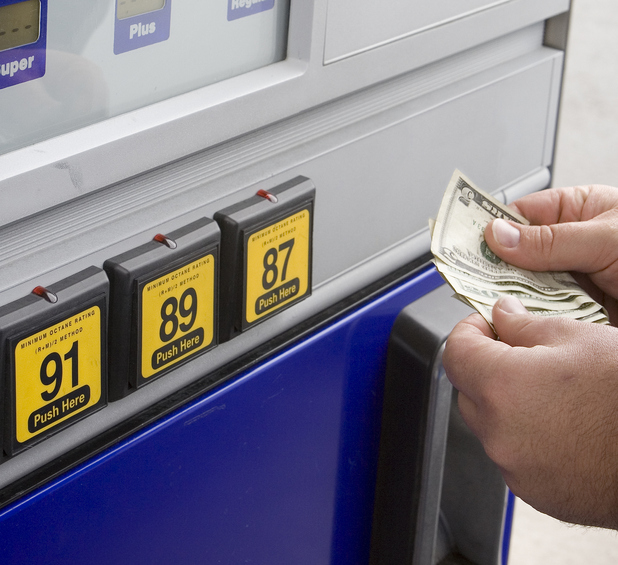The carbon fuel tax, which failed in the legislature and was soundly rejected by Washington voters last November, is back. Lawmakers included the unpopular tax in the transportation spending plan approved by the Senate Transportation Committee on Wednesday.
The plan would take some $15 billion in taxes for transportation projects around the state, including money to maintain and expand highways, fix culverts that impede fish passage, build electric ferries, and help pay for a new Interstate 5 bridge between Vancouver and Portland. SB 5970 would authorize some $5 billion in bonds, and SB 5972 would appropriate funds for the 2019-21 state transportation budget.
Key elements of the proposed plan are contained in SB 5971, which would impose a carbon fuel tax that would add about 15 cents per gallon to the cost of gasoline, as well as raise family costs for home heating and other fuel uses. The bill would also add another six more cents to the state gas tax. If enacted, these proposals would bring state gas taxes to 70.4 cents a gallon, up nearly 43 percent from the current 49.4 cents. This would make Washington’s gas taxes among the highest in the nation.
Interestingly, the House passed HB 1633 last week, which would make the posting of state and federal fuel tax rate information on fuel pumps permanent. This posting requirement was added by a 2017-19 transportation budget proviso, but had not been enacted as state law. The bill passed on a bi-partisan 92-2 vote and is currently before the Senate Transportation Committee.
SB 5971 would also charge a special transportation tax on home and business construction, ranging from $1 per $1,000 of valuation for commercial projects, and $2 per $1,000 for homes. Combined with the carbon tax and gas tax increase, these assessments would be the largest source of money in the transportation plan. The bill would also add or raise other taxes and fees, including raising the motor vehicle gross weight tax; an electric vehicle fee; sales taxes on automobile parts and bicycles; and an increase in the rental car tax.
The bill was referred to the Senate Ways and Means Committee. The other two bills, SB 5970 and SB 5972 were referred to the Senate Rules Committee.
Also on Wednesday, the Senate Transportation Committee approved SB 5336, to exempt electric passenger vehicles from state and local retail sales taxes of up to $1,000. Such vehicles would have to be exclusively powered by electric batteries and have a suggested retail price of $45,000 or less.
The full House and Senate have been busy all week passing legislation during lengthy floor sessions ahead of next Wednesday’s cut-off for passing bills in their originating chamber. Nearly 500 measures have now passed their original house and both chambers are continuing debate and action on a broad variety of bills.
Most measures are passing by unanimous or large majority votes, but a number of bills have been more closely contested. Among these are HB 1638, to repeal philosophical objections to mandatory vaccines which passed the House 57-40; bans on plastic bags (SB 5323, passed 31-14) and plastic straws (SB 5077, passed 27-21), and a bill to include lobbyists in legislative conduct requirements (SB 5861, passed 29-18.)
To see how your lawmaker voted on these and other bills and to keep up on the latest actions in Olympia, visit washingtonvotes.org. Follow us on Facebook and Twitter #waleg.
—-end—-


